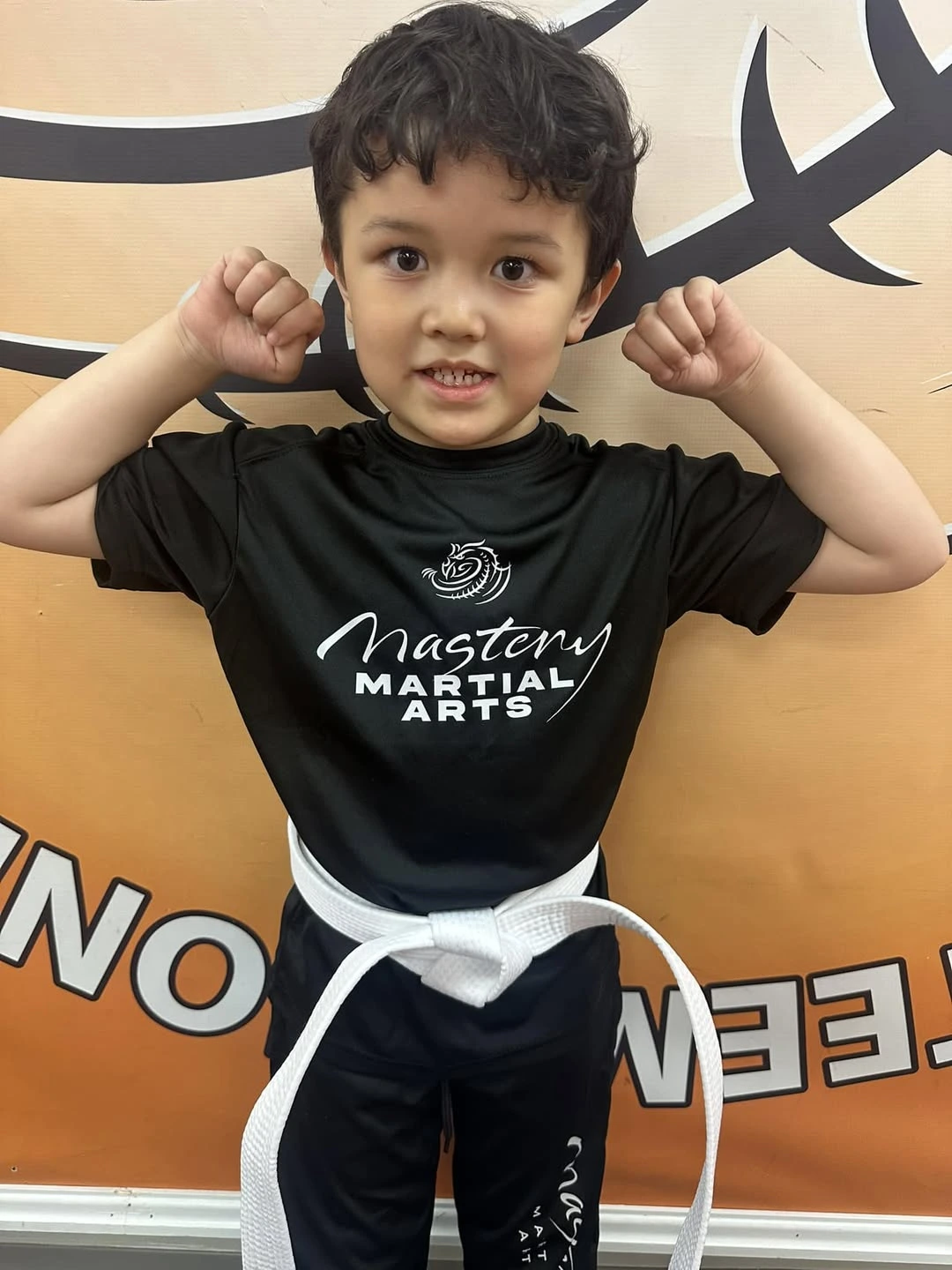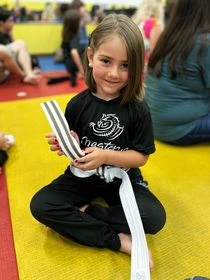Introduction

Martial arts boosts child development skills and is more than just physical exercise; Many parents are looking for ways to instill discipline, leadership, and problem-solving in their children. This post explains how martial arts contributes to emotional development and provides tips on how to choose the right program. You will learn how to foster a disciplined mind and the overall growth of your child. By addressing common questions and sharing real-life success stories, this content will help you make informed decisions for your child’s development.
Main Points
Martial arts training develops physical skills and overall child development
Children develop self-discipline and respect through structured martial arts training
Martial arts improves focus, concentration and emotional regulation in children
Martial arts develops social skills and creates lifelong friendships among peersEmpathy and resilience are key values developed through martial arts
How Martial Arts Contributes to Child Development Skills
Martial arts plays a big role in child development by developing physical skills such as flexibility and coordination. Through systematic training, young practitioners not only improve self-discipline and work ethic but also build confidence and self-esteem.
Martial arts for 4 year olds develops focus and concentration in children while developing social skills and friendships through group activities. The practice instills vital values and life skills that contributes to healthy body image and lifelong habits.
The Role of Martial Arts in Physical Skills
Martial arts training, especially karate, develops a child’s physical fitness and overall development by improving various physical skills. Practicing these requires focused movements that develops coordination, balance and flexibility which in turn develops attention and executive functions essential for academic performance. As children learn to execute techniques correctly, they build muscle strength and endurance and develop healthy habits and lifelong fitness. Martial arts training helps to develop self-discipline
in children, addressing issues of aggression and violence. Through consistent practice, children learn self-control and respect for others, cognitive development as they understand the consequences of their actions. Parents see a positive reinforcement of behavior where the values instilled in martial arts carries over to school and home life and helps children to manage emotions and social interactions.
Building Confidence and Self-Esteem in Young Practitioners
The journey through martial arts, whether in a dojo or dojang, gives children the tools to build confidence and self-esteem . As they progress through a structured curriculum that promotes concentration and physical mastery, young practitioners earn achievements from stripes to belt ranks. This progression not only improves their martial skills but also develops social skills
as they interact with peers and builds a community where they feel valued and respected.
Improving Focus and Concentration in Children
Engaging in martial arts improves focus and concentration in children, especially in preschool. Through structured physical activities that require attention to detail, young practitioners learn to stay present and responsive, which helps to manage their behavior in classes and summer camps. The discipline gained from martial arts training translates to important life skills that help children to excel academically and socially.
Child Development Table
| Aspect | Impact on Child Development |
|---|---|
| Focus | Enhances attention span during classes and activities. |
| Concentration | Improves ability to complete tasks and participate in group settings. |
| Behavior | Encourages respectful interactions and self-control. |
| Physical Activity | Promotes overall health and fitness. |
| Life Skills | Fosters important social and emotional competencies. |
Developing Social Skills and Friendships Through Group Activities
Participating in martial arts training not only develops physical fitness but also plays a big role in developing social skills and friendships among children. The structured environment of group activities promotes teamwork, cooperation, and humility, which are essential components of healthy interactions. As children engage in aerobic exercise together, they learn to manage stress and strengthen their social networks, which ultimately enhances their overall child development.
Values and Life Skills From Martial Arts Practice
Martial arts training instills important values and life skills that children need to grow. Through the discipline of martial arts, children develop confidence in themselves, learn the importance of ethics like respect and integrity and build endurance through physical challenges. These values not only helps personal growth but also guides children in social interactions, laying the foundation for responsible behavior and leadership in all aspects of life. Martial arts teaches children discipline and focus. This foundation is the groundwork for emotional growth.
Impact on Emotional Development
Martial arts contributes to emotional development by helping children develop resilience through challenges. Techniques learned in martial arts helps to manage stress and anxiety while fostering empathy and respect for others. Moreover, celebrating personal achievements in training gives them a sense of pride that enhances emotional well-being and provides a solid foundation for future emotional growth.
Developing Emotional Resilience Through Challenges
Through martial arts training, children face and navigate different challenges and develops essential emotional resilience.
The process of learning techniques and progressing through ranks gives young practitioners opportunities to understand and manage setbacks and foster perseverance and self-control. Such experiences equip children to cope with stress and uncertainty which are important skills for their overall emotional development:
Children experience challenges in training and learning to overcome obstacles.
Success in martial arts builds self-confidence and reduces anxiety.
Emotional resilience gained translates to better handling of life’s difficulties.
Managing Stress and Anxiety With Martial Arts Techniques
Martial arts techniques provide valuable tools for children to manage stress and anxiety. Through focused training, students learn breathing exercises, meditation, and structured movements that promote emotional regulation. These practices enables young individuals to face everyday pressures with confidence, to feel calm and resilient inside and outside the dojo.
Developing Empathy and Respect for Others
Martial arts training is a great way to develop empathy and respect in children. By doing partner drills and team activities, young practitioners learn to understand others’ perspectives and develop camaraderie. These experiences promotes respectful interactions as children realize the importance of teamwork and support in achieving common goals and builds strong foundation for meaningful relationships:
Children do partner exercises and develop mutual understanding.
Team scenarios teach the value of collaboration and respect.
Empathetic interactions develops stronger friendships and support networks.
Celebrating Personal Achievements in Martial Arts
Celebrating personal achievements in martial arts is crucial in supporting the emotional development of children. As young practitioners reach milestones such as earning stripes or advancing to higher belt ranks, they feel a great sense of accomplishment that boosts their self- esteem and motivation. This process not only reinforces their commitment to training
but also helps them understand the value of hard work and perseverance and lays foundation for managing future challenges inside and outside the dojo. Understanding how martial arts develops emotional growth is the foundation for what’s next. Choosing the right program can unlock more development.
Choosing the Right Martial Arts Program
Choosing the right martial arts program is essential to maximize child development skills. Parents should look for programs that promote growth and essential skills and have qualified instructors who facilitate this growth. Also, evaluating class requirements and structure is critical to ensure that the format suits the child’s needs and creates a supportive learning environment.
Programs that Promote Growth and Skills
When choosing a martial arts program that fosters child development skills, parents should prioritize programs that emphasize both physical and emotional growth. Reputable programs often have structured lessons that teach self-discipline, respect, and teamwork, thus creating an environment for learning. Observing classes and assessing instructors’ qualifications can also give valuable insight into whether the program supports the child’s developmental needs.
Importance of Qualified Instructors
Qualified instructors is key to child development through martial arts by providing structured guidance and positive learning environment. Their expertise allows them to teach essential skills like discipline and respect and address individual needs and varying skill levels. By ensuring instructors are well-trained and knowledgeable, parents can be confident that their children are receiving quality instruction that nurtures physical and emotional growth.
Class Requirements and Structure
Evaluating class requirements and structure is important for parents considering martial arts programs for child development.
A good program should have a clear curriculum that balances physical training with lessons on discipline and respect. For optimal results, parents should observe how the classes are organized and ensure the instructional methods fits their child’s learning style and develops skill and personal growth. Many have chosen martial arts for their children and found more than just physical training. Stories unfold of growth and strength where lives changed in amazing ways.
Addressing Common Concerns About Martial Arts for Children
Concerns about martial arts for children usually revolve around misconceptions like martial arts promotes aggression.
We need to address these myths and understand the age appropriateness of different martial arts styles, and the importance of safety and supervision during training is crucial to ensure a positive experience for young practitioners.
Busting Myths About Martial Arts and Aggression
Many myths surround martial arts, especially the idea that martial arts encourages aggression in children. In reality, martial arts training teaches discipline, respect, and self-control, and non-violent conflict resolution. By doing structured lessons, children learn to channel their energy positively, which helps in emotional regulation and social interactions and dispels the myth that these activities promote aggression.
Understanding Age Appropriateness for Different Martial Arts Styles
Knowing the age appropriateness of different martial arts styles is crucial for maximizing child development. Each style, whether karate, taekwondo, or judo, has its own methodology suitable for different age groups and skill levels. For example, younger children often thrive in programs that focus on foundational skills and play-based learning, while older practitioners can do more complex techniques that develop coordination and discipline and make it a rewarding experience that promotes growth and confidence.
Safety and Supervision in Training
Safety and supervision in martial arts training is key to child development. Qualified instructors play a big role in monitoring techniques and creating a safe environment, preventing injuries while encouraging positive interactions among students.
By setting clear guidelines and being attentive, programs can create an environment where children can thrive physically and emotionally and focus on skill development without worries. Parents wonder where to find the right support for their child’s martial arts journey. In the next section, valuable resources will guide them.
Resources for Parents Considering Martial Arts for Their Children
Parents looking to develop their child’s martial arts can explore options. Recommended martial arts schools and programs offer a structured environment for learning essential skills. Online resources can also provide insight into child development in martial arts. Books and articles about martial arts for kids will help them understand and make informed decisions for their child’s growth.
Recommended Martial Arts Schools and Programs
Parents looking for suitable martial arts schools for their child should consider institutions that prioritize skill development in a safe environment. Local community centers often have programs for different age groups focusing on essential life skills like discipline and respect. And many established martial arts schools have beginner classes for children where qualified instructors emphasize safety and personal growth so each child gets the attention and guidance they need to thrive in their martial arts journey.
Online Resources to Learn More About Child Development in Martial Arts
Online resources help parents understand the role of martial arts in child development. Websites about parenting and educational psychology often have research articles, expert interviews, and case studies about the benefits of martial arts for kids. These platforms allow parents to learn how martial arts can improve physical fitness, discipline, and emotional resilience in young practitioners so they can make informed decisions for their child’s programs.
Books and Articles about Martial Arts Benefits for Kids
Books and articles about the benefits of martial arts for kids provide valuable information for parents who want to enhance their child’s development skills. Titles like “The Martial Arts Kid” and “The Benefits of Martial Arts for Kids: What Parents Should Know” offer practical advice backed by research on how martial arts can improve discipline, focus, and resilience. Parents can use these resources to understand the transformative effect of martial arts training on their child’s emotional and social growth so they can make informed decisions for their child’s activities.
Conclusion
Martial arts develops child development by improving physical abilities, self-discipline and emotional resilience. Through structured training, children builds confidence, focus and essential social skills and positive relationships. By choosing the right program with qualified instructors, parents can create a supportive environment that nurtures these skills. Joining martial arts as a development tool helps children to thrive in all aspects of life and become a well rounded person.




0 Comments